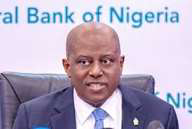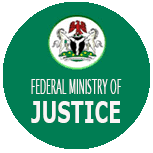Nigerian Medical Association Demands Reversal of Dr. Owoeye’s Appointment Amid Corruption Allegations

The Nigerian Medical Association (NMA) has issued a formal call for the reversal of the appointment of Dr. Olugbenga Owoeye as the Medical Director of the Federal Neuro-Psychiatric Hospital, Yaba, Lagos, citing serious allegations of financial misconduct and professional mismanagement during his previous tenure.
The demand, which has drawn backing from senior consultants, resident doctors, and healthcare advocacy groups, follows months of internal unrest and multiple petitions sent to the Federal Ministry of Health and the Presidency.
At the heart of the controversy are allegations that Dr. Owoeye misappropriated hospital funds meant for critical patient care and infrastructure. Sources within the hospital accuse him of diverting revenue from the Drug Revolving Fund (DRF) and special intervention funds to cover electricity and diesel bills in violation of federal financial protocols.
An audio recording reportedly leaked in April 2025 allegedly captures Owoeye admitting to spending between ₦35 million and ₦40 million monthly on electricity and an additional ₦18 million on diesel, using funds originally allocated for drugs, patient feeding, and facility maintenance. Hospital staff claim this diversion resulted in persistent shortages of essential medications and supplies, jeopardizing the care of vulnerable psychiatric patients.
Furthermore, staff say the hospital failed to remit internally generated revenue (IGR) to the Treasury Single Account (TSA), a legal requirement for federal institutions, and accuse management of falsifying procurement records to mislead auditors.
The hospital’s chapter of the Medical and Dental Consultants’ Association of Nigeria (MDCAN) reportedly passed a vote of no confidence in Dr. Owoeye earlier this year, citing “chronic mismanagement, opacity in financial dealings, and failure to uphold clinical standards.” Other staff unions have echoed these sentiments, warning that his reappointment would worsen morale and undermine patient welfare.
According to frontline workers, food served to patients has deteriorated in quality, while medications frequently run out and are only restocked temporarily ahead of external visits by regulatory teams. Nurses and doctors allege that procurement records are often manipulated to avoid detection of irregularities.
The Federal Ministry of Health had dispatched a team to the facility in May to investigate the allegations. However, several stakeholders have expressed concern that the findings of the investigation may have been compromised. They accuse Dr. Owoeye of obstructing the process and using influence to secure a favourable outcome, paving the way for his reappointment.
Despite the unresolved allegations, his name was submitted for a second term, triggering a new wave of opposition across the hospital and beyond. Critics argue that the decision, if allowed to stand, will damage public trust in the nation’s healthcare institutions.
In a strongly worded letter, the NMA called on the Health Ministry and the Presidency to immediately reverse the reappointment and initiate a transparent, merit-based selection process for new leadership at the psychiatric hospital.
“We cannot condone a situation where a facility meant to serve mentally ill Nigerians becomes a theatre of corruption and cover-ups,” the statement reads. “The credibility of the health system is at stake.”
Medical workers say failure to act may force them to pursue further industrial action or legal redress.
The Federal Ministry of Health has yet to issue a formal response. If the reappointment stands, it may trigger wider protests within the health sector, as stakeholders demand improved governance, especially in psychiatric care, a field often neglected in public health funding and oversight.
Dr. Owoeye has not publicly responded to the allegations.
As pressure mounts, the case has become a litmus test for President Tinubu’s administration, which has repeatedly pledged to fight corruption and improve transparency in public institutions.








